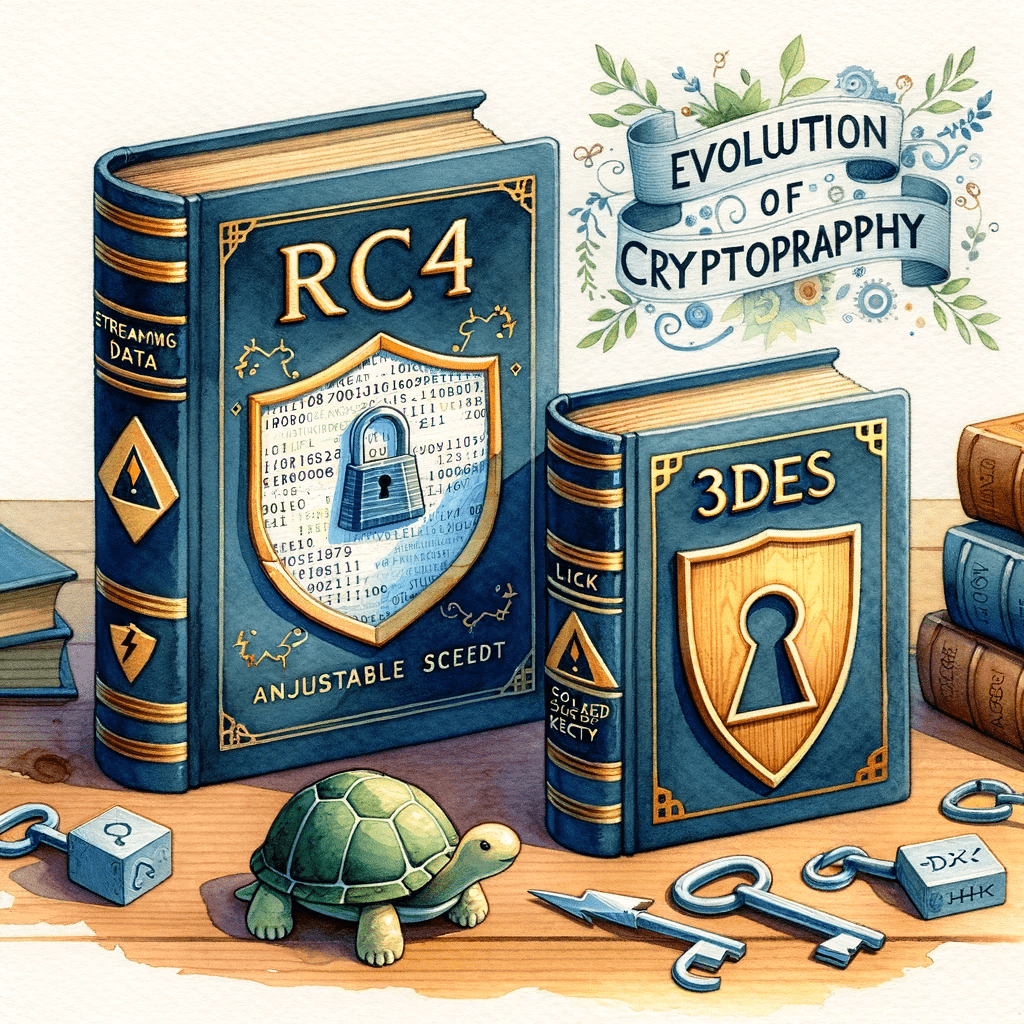In the world of cryptography, ciphers act as the cornerstone for ensuring the confidentiality and security of data during transmission. Among the myriad of ciphers available, RC4 and Triple DES (3DES) stand as notable mentions. Although both aim to provide data encryption, they differ fundamentally in their design and operation. This article aims to delineate the differences between RC4 and 3DES ciphers, shedding light on their respective characteristics and how they fare against modern-day security requisites.
Cipher Type:
-
-
- RC4:
- Stream Cipher: RC4 is a stream cipher, which means it encrypts plaintext data one bit or byte at a time as it streams.
- 3DES:
- Block Cipher: 3DES, on the other hand, is a block cipher that encrypts data in fixed-size blocks, typically of 64 bits.
- RC4:
-
Encryption Mechanism:
-
-
- RC4:
- Variable Key Size: RC4 allows for a variable key size, which can range from 40 to 2048 bits, offering a degree of flexibility.
- Key Scheduling Algorithm (KSA) and Pseudo-Random Generation Algorithm (PRGA): RC4’s operation involves an initial key scheduling followed by a pseudo-random generation phase to create the keystream used for encryption.
- 3DES:
- Fixed Key Size: 3DES uses a fixed key size of 168 bits, although effectively it only provides 112 bits of security due to the meet-in-the-middle attack.
- Triple Encryption: 3DES operates by applying the DES algorithm three times in succession, which enhances its security compared to the original DES cipher.
- RC4:
-
Security:
-
-
- RC4:
- Known Weaknesses: RC4 has known vulnerabilities, such as biases in its keystream that can lead to vulnerabilities when not used correctly.
- 3DES:
- Enhanced Security: By applying encryption three times, 3DES provides enhanced security compared to its predecessor, DES, although it’s considered to be much slower.
- RC4:
-
Performance:
-
-
- RC4:
- Faster: Due to its simpler algorithm and operation, RC4 tends to perform encryption and decryption operations faster than 3DES.
- 3DES:
- Slower: 3DES, with its triple encryption process, is significantly slower in performance compared to RC4.
- RC4:
-
Modern-Day Usage:
-
-
- RC4:
- Phasing Out: Due to its vulnerabilities, the use of RC4 is being phased out in favor of more secure and modern encryption algorithms.
- 3DES:
- Limited Use: 3DES also sees limited use today, with many organizations transitioning to more secure and efficient algorithms like AES.
- RC4:
-
Both RC4 and 3DES, once staples in cryptographic protection, have shown their age in the face of evolving security standards and computational power. The move towards more secure and efficient algorithms like AES is a testimony to the continual evolution in the quest for robust cryptographic security.

